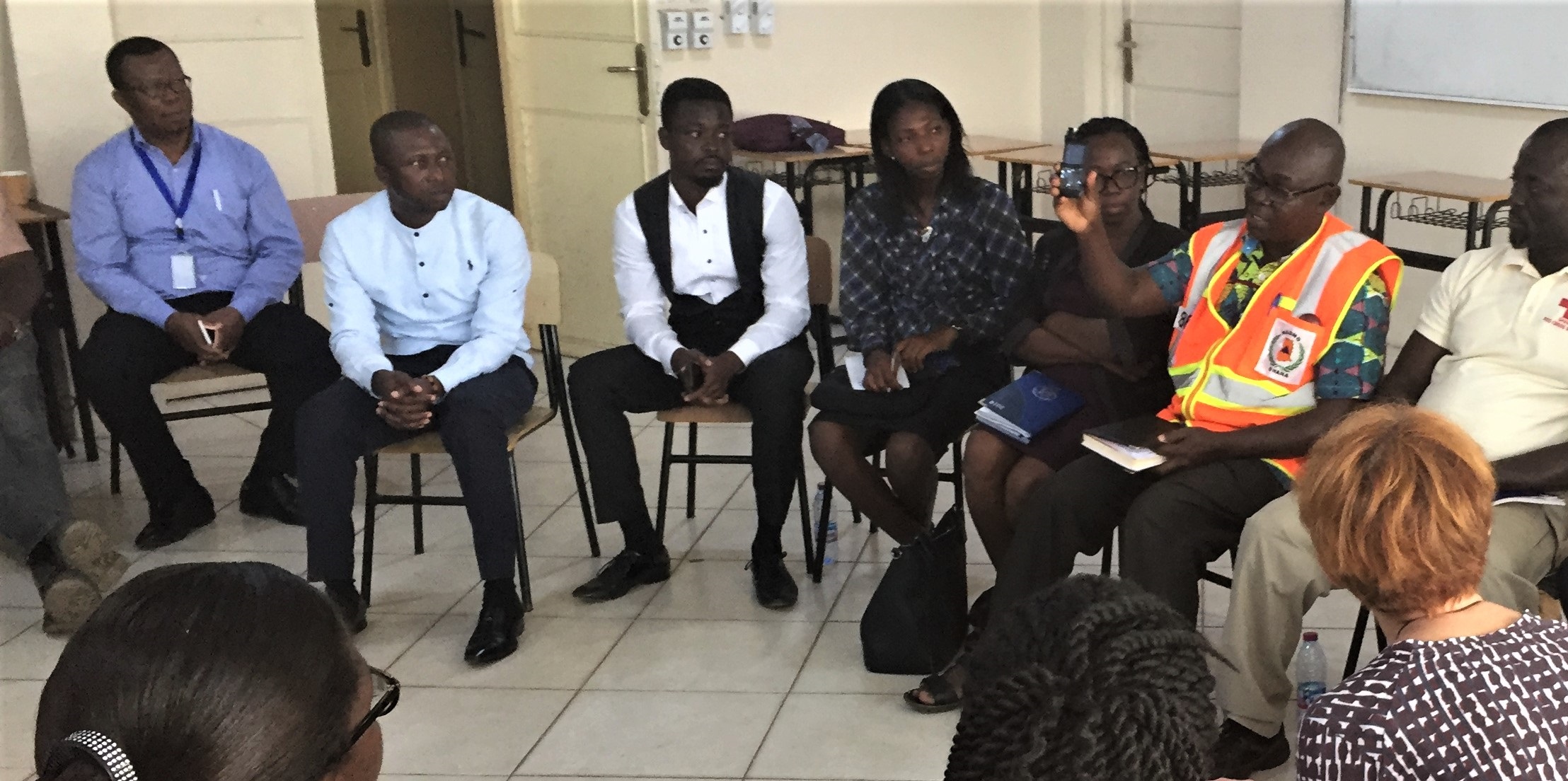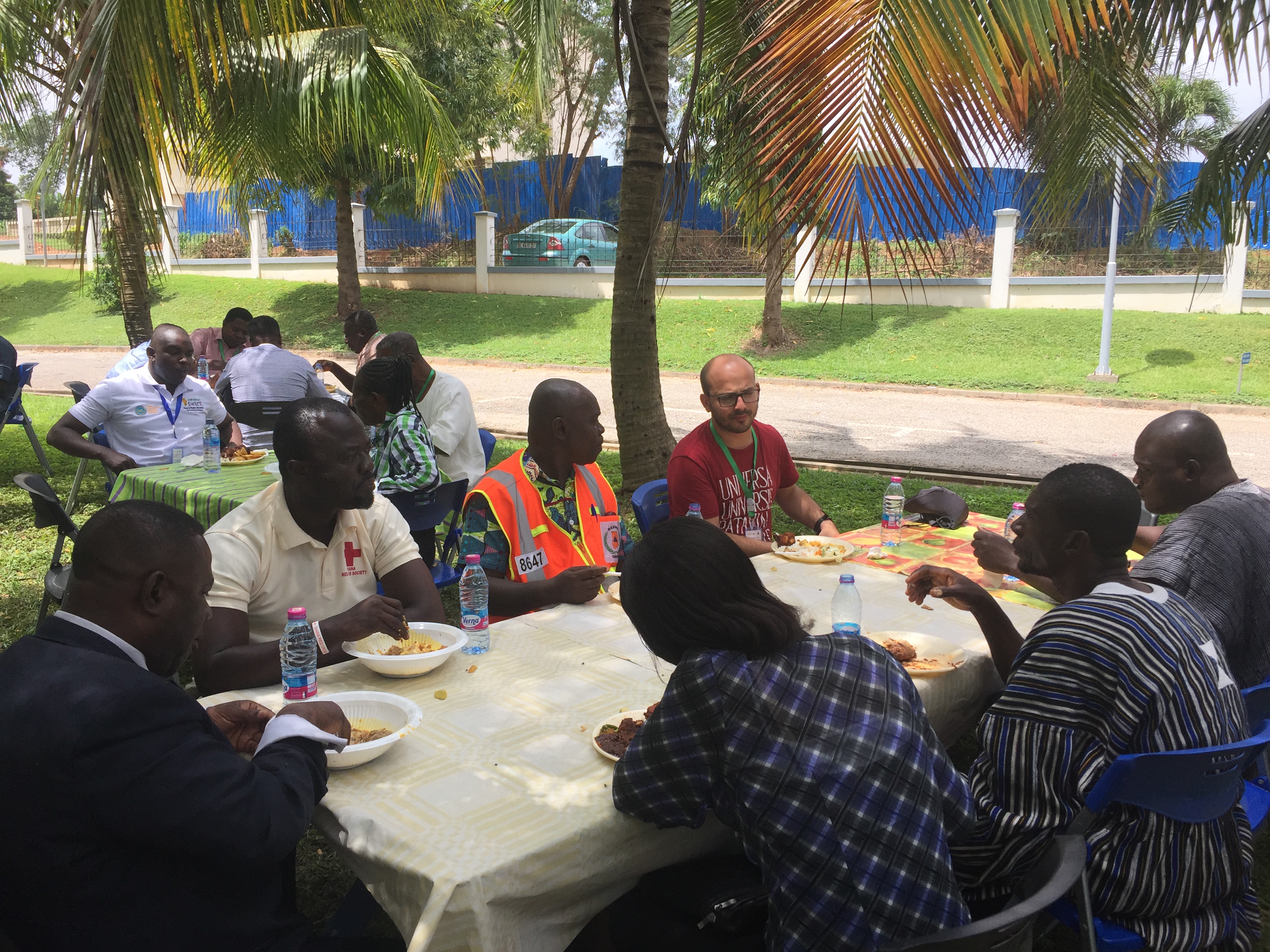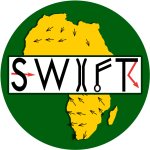Report from Kumasi, Ghana, July 27th 2019
Two-way conversations between a wide range of ‘users’ of weather information and SWIFT scientists has helped to inspire new ideas on how the Ghana Meteorological Agency (G-Met) and other Met Services across Africa can improve their communications of weather forecast information into the future.
The SWIFT Users Engagement Workshop was led by Dr Philip Antwi-Agyei and Frank Baffour-Ata of the Kwame Nkrumah University of Science and Technology (KNUST), with involvement from 15 User Group representatives drawn from across Kumasi and the Ashanti Region, Ghana. The Discussion Forum was also attended by over 60 scientists from the SWIFT project and students from across Africa who are attending the SWIFT Summer School based at the College of Science, KNUST.
Following introductions from Maureen Ahiataku (G-Met) and Prof Andy Dougill (University of Leeds, UK, on behalf of the SWIFT project), two group conversations were held exploring ways that weather forecast information can be improved and more closely linked to the specific needs and concerns of different user groups across climate sensitive sectors (including agriculture, forestry, urban planning and disaster management) in Ghana.
The first issue considered was that of severe storm warnings and how they can be used to reduce flooding and related problems across cities such as Kumasi, which has recently experienced extensive flooding and associated losses of life and displacement from homes. On this issue, the SWIFT science team are using satellite monitoring of severe storm development and trajectories to increase the accuracy of weather warnings over a 4-6 hour timeframe, rather than the current 1-2 hour warning period for accurately tracking a storm’s track. This approach, termed ‘nowcasting’, was enthusiastically endorsed by representatives of Kumasi Metropolitan Assembly, the National Disaster Management Organisation (NADMO), the Environmental Protection Agency (EPA), Ghana Red Cross Society and representatives of Christian Network on Environment and Climate Change (an NGO based in Kumasi), Trash Recycling and Management Organization (TRAMO) and water industries from across Kumasi. One of the participants from the National Disaster Management Organization (NADMO) highlighted “the need for data on flood prone areas in the Ashanti region to facilitate evacuation when warnings are issued.

The second main discussion topic related to how seasonal (3-6 month) forecasts of rainfall could be improved by the greater use of new sub-seasonal (2-4 weeks) information that can now significantly improve the accuracy and use of weather information in farming systems across Africa. This discussion included Rev John Manu, the Regional Director of the Ministry of Food and Agriculture (MOFA), the Director of the Agency for Health and Food Security and representatives of the Council for Scientific and Industrial Research (CSIR) and Farmers Associations. This group considered the scope to expand from rainfall forecasts to also improve warnings of heatwaves and strong solar intensity that significantly affect animals. They also highlighted the importance for improved training of agricultural extension staff and community leaders on how to use weather information and discussed the opportunities afforded by new mobile phone technologies to complement warnings transferred via community radio and national television forecasts which remain only sparsely used in rural areas. Participants were impressed with the platform this workshop provided to engage users and science. The Director of Agency for Health and Food Security stated that “the involvement of meteorological information user groups provided mutual learning opportunities and expanded the opportunity for partnerships for co-creating and implementing climate-and weather relevant agriculture projects.”
In summing up, Dr Antwi-Agyei (who is the co-lead of SWIFT’s User Engagement work package) noted that this event was significant as it opens up new routes of conversations between user groups and the SWIFT science team that will continue over the next 2.5 years of the SWIFT project, which is funded by the UK’s Global Challenges Research Fund (GCRF). He stated that “this project is critical as it addresses key challenges confronting smallholder farmers and disaster risk practitioners in addressing the threats posed by climate change to Ghana”. It is also significant to emphasise that similar events will be held in Tamale and Bolgatanga in northern Ghana in the coming weeks / months. Findings from these workshops are important nationally, as they will inform the development of Ghana’s first National Framework for Climate Services.

